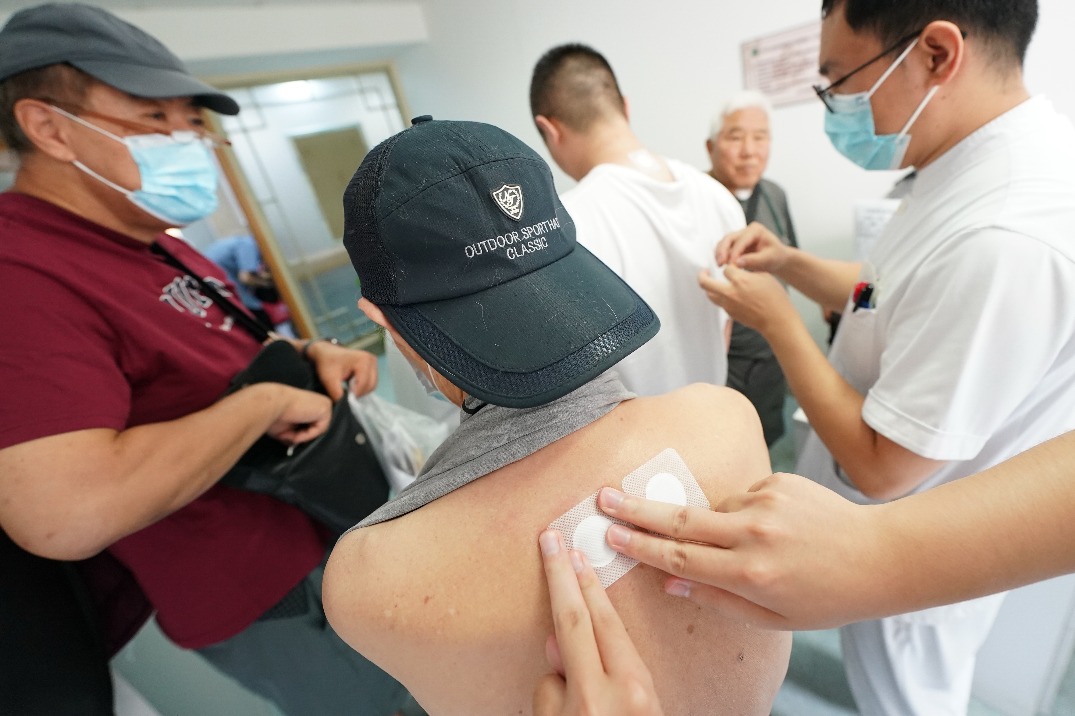Farmers in Kongtong find fortune in cattle feces
By MA JINGNA in Lanzhou and HOU LIQIANG | China Daily | Updated: 2022-12-22 09:11
As the beef industry continues to boom in Kongtong district in Gansu province's Pingliang city, many farmers have seen continuous increases in their incomes. Ma Xiaozhong is one of them.
The 43-year-old, however, never expected that what would bring him more income included cattle feces.
Previously, the price of cow dung was only about 25 yuan to 30 yuan ($3.60 to $4.30) per cubic meter. Now it has shot up to 50 yuan to 80 yuan. "Beyond all doubt, it has been the second major income source for the cattle industry," he smiled.
The change happened as the Kongtong government strives to promote a mode of circular agriculture in the district with a population of half a million, making full use of its booming cattle industry.
Upstream industries for the cattle sector, corn planting and cornstalk fodder production have been introduced. In the downstream, great efforts have been made to promote the utilization of cattle feces as organic fertilizer.
As of late October, the number of cows in the district stood at 209,000, compared with 192,000 in April 2020, according to the local government. The district is expected to see the number jump to 262,000 by the end of the year, thanks to preferential policies.
According to Ma, the local government will subsidize farmers 1,000 yuan for every newborn calf of Pingliang Red Cattle, a breed endemic to the plateau area in eastern Gansu. For a newborn calf of other breeds, the subsidy is 500 yuan.
The government is also offering financial support to help locals establish cattle farms. Ma is one of the beneficiaries.
He had worked as a teacher and truck driver before the idea of raising cows occurred to him in 2012. At the very beginning, the man from Zhaoyuan village only had three cows, though the number gradually increased to over 100 several years later.
Now he owns about 500 after building up a breeding base in his home township of Dazhai at the end of 2021 with financial support from a government fund for poverty reduction cooperation between the country's western and eastern regions.
Thanks to the demonstration role of Ma's business, more households have become engaged in the beef cattle industry with the encouragement of the local government. While some started their own cow-raising businesses, some planted corn to provide fodder for cattle farms or worked directly on some of the farms.
Currently, 131 households in 26 villages near Ma's home have started to raise cattle. On average, the business has helped increase these families' annual incomes by over 10,000 yuan, according to the local government.
Ma described his breeding base as pollution-free with automatic apparatuses for ventilation, temperature control and dung collection. The dung is transported to a fermenting facility and made into organic fertilizer.
Zhu Hongli, head of the Kongtong livestock and veterinarian center, said significant progress has been made since Kongtong rolled out a program to enhance feces utilization across the district in 2019. In addition to making organic fertilizer, the district has also tried to make feces into fuel.
Last year, 75 percent of the feces in the district was utilized. Now, the rate has increased to 90 percent, which means that over 800,000 metric tons of feces are collected and utilized, he said.
According to the Kongtong government, the district has set 40 locations to collect feces to help dispose of the waste in a concentrated manner. To date, 19 new organic fertilizer plants have been built this year.
For Wang Feng, a farmer from Shizhuang village in the district, the utilization of feces has resulted in a multi-win scenario for environmental protection, cattle farming and agriculture development.
The previous way of disposing of feces by directly sending it to farmland without dividing the dung and the urine not only contaminated the soil, but also made crops suffer some diseases and insect pests, said the 51-year-old who has been planting crops and raising cattle for 16 years.
The organic fertilizer made from fermenting cow dung has proved to be effective in improving the soil. "After using the organic fertilizer for three straight years, the grain yield on my farm has increased by 30 percent," he said.
Liang Lu contributed to this story.
Contact the writers at houliqiang@chinadaily.com.cn
























